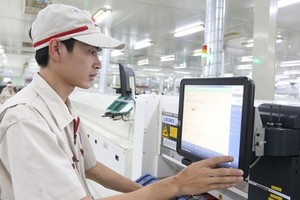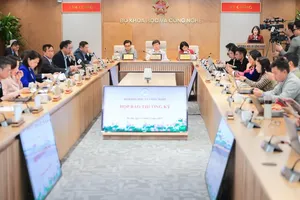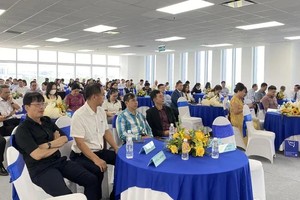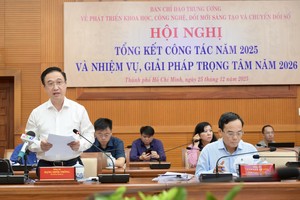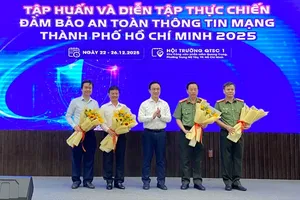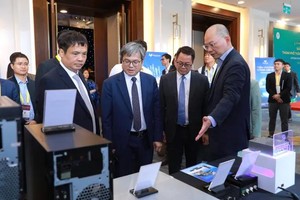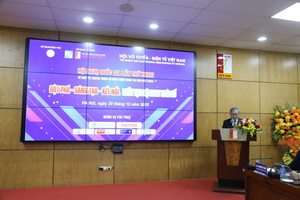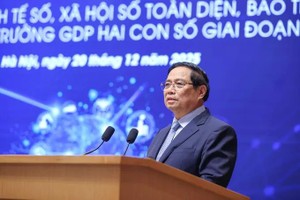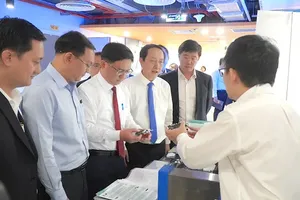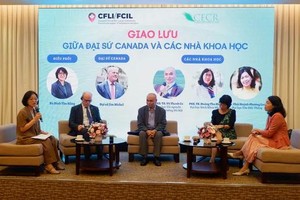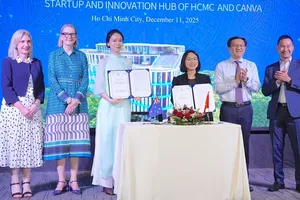)
Speaking at the forum, Professor Dr. Nguyen Duc Khuong, Chairman of AVSE Global, said that the Vietnam R&D Forum 2025 focused on actionable solutions, specifically the transformation of global knowledge into concrete action in accordance with Vietnam’s situation.
According to World Bank statistics in 2024, Vietnam’s R&D expenditure as a percentage of GDP rose from 0.3 percent in 2013 to 0.43 percent in 2021. This marks a positive step forward; however, the figure remains modest compared to the average in developed countries, where R&D spending typically ranges between 2 percent and 4 percent of GDP.
Vietnam continues to face a range of challenges, including limited capacity to absorb and master advanced technologies, a lack of connection between businesses and universities, and underutilization of global intellectual resources. This context underscores the urgent need for a well-defined R&D strategy that is guided by a clear vision, strategic orientation, and concrete actions.
)
According to Mr. Nguyen Trung Kien, Chairman of the State Committee for Overseas Vietnamese Affairs (SCOVA) under the Ministry of Foreign Affairs, more than six million Vietnamese living abroad represent an invaluable resource, with many intellectuals and experts wanting to contribute to the nation’s development.
Among them, AVSE Global plays a vital role as a bridge connecting international knowledge with Vietnam, particularly in advancing R&D initiatives. As such, research and development form a critical foundation for the effective application of science and technology in practice.
In his presentation, Mr. Navi Radjou, an expert and consultant on innovation in Silicon Valley, the US, cited the success of India's R&D model, emphasizing that research and development have been a key factor in enabling the country to gradually surpass Japan and become the world’s third-largest economy, as projected this year. He noted that this represents both an opportunity and a valuable lesson for Vietnam to develop a new R&D model that is lean, adaptable, and sustainable.
)
However, according to Associate Professor Dr. Truong Gia Binh, Chairman of the Board at FPT Corporation and Head of the Private Sector Development Research Board under the Government’s Advisory Council for Administrative Procedure Reform, Vietnam needs to have stronger incentive policies.
For international experts, compensation is a key factor, said Associate Professor Dr. Truong Gia Binh. Many countries have adopted flexible financial models, in which the Government covers 50 percent of the salary for high-level specialists, while the remaining portion is paid by enterprises.
He proposed that Vietnam implement a similar mechanism. For example, for experts earning between US$500,000 and US$1 million per year, the Government would subsidize half. This could significantly enhance Vietnam’s ability to attract top-tier talent to work and contribute to the country’s development.
The Vietnam R&D Forum 2025, held from July 30 to 31, centers on three key themes, including a roadmap for Vietnam’s R&D strategy from 2025 to 2030 focusing on financial incentives, expert connectivity, and industry–university collaboration; a proposed national R&D policy framework, which includes the establishment of a National R&D Council, creating policies to reward talent and tax incentives for businesses investing in R&D; and a sectoral investment action plan aimed at developing dedicated R&D special economic zones, supporting professional training, and promoting specialized investment funds.




